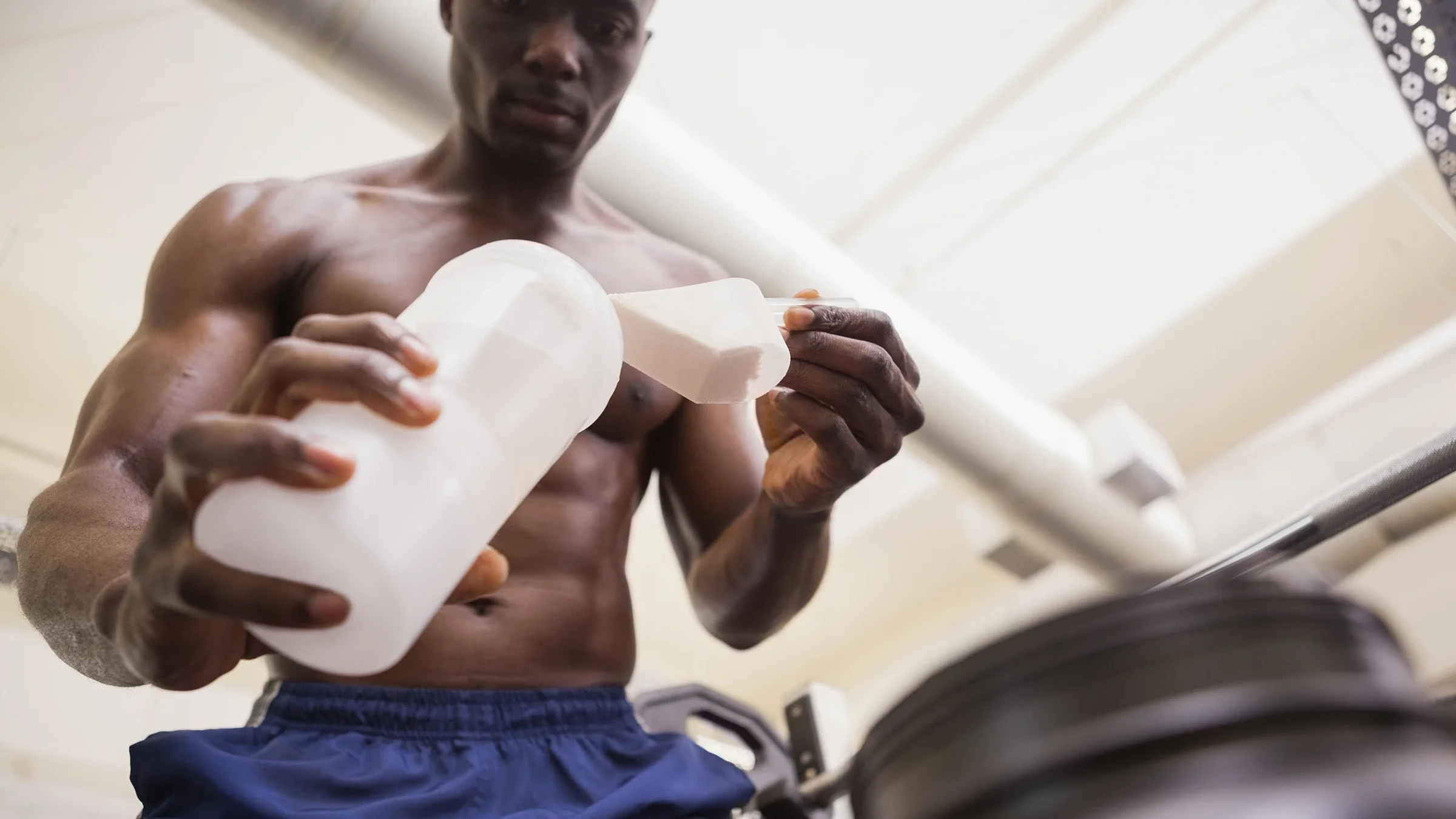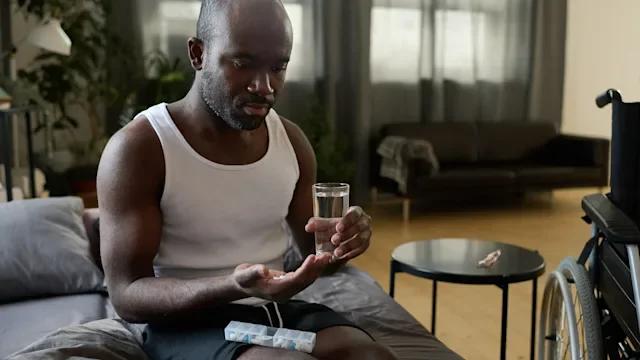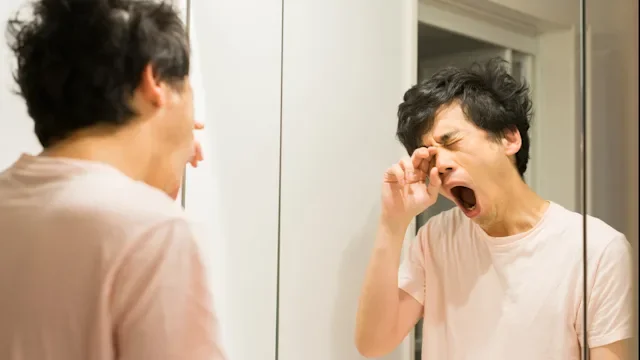Key takeaways:
Creatine is a supplement that can help you build muscle and improve exercise performance.
Some people worry that creatine can cause alopecia or hair loss because it increases a male sex hormone.
But studies have debunked that myth. Creatine isn’t linked to baldness.
People often take a creatine supplement to improve their athletic performance and increase their muscle mass. And some are using it to improve their cognitive abilities.
But you may be avoiding creatine because you’ve heard it can lead to alopecia or hair loss, especially in men who are prone to male-pattern baldness.
But is that really something you should worry about? Keep reading to find out.
Search and compare options
Does creatine cause hair loss?
There’s no evidence showing that creatine is linked to hair loss or alopecia. People became worried about the connection because of a study published in 2009. It found that athletes who took high doses of creatine had higher levels of a male sex hormone called dihydrotestosterone (DHT).
DHT can cause hair follicles to shrink, and natural changes in DHT levels have been linked to hair loss. There was also concern that creatine raised testosterone levels. DHT is produced from what’s called free testosterone, so people worried that higher testosterone would raise DHT levels even more.
But no other studies have found that people taking creatine supplements have a higher rate of hair loss.
And several studies have looked at whether taking creatine raises levels of DHT or free testosterone. Most have found that people taking creatine supplements don’t have elevated levels of either of these hormones.
Together, the research doesn’t show that taking creatine is linked to an increased risk of hair loss, or even an increase in hormones that could cause hair loss.
What does creatine do in the body?
Creatine is a chemical that’s found naturally in the body. It plays an important role in creating energy for muscles. That may help build muscle mass. It can be especially helpful for people who participate in high-intensity sports.
What are other causes of hair loss? Being low in certain vitamins or minerals may cause hair thinning.
Can you treat hair loss? Yes! Here’s an in-depth look at treatments that restore hair growth.
How much can creatine improve athletic performance? Read about the experiences of three athletes who tried creatine.
Athletes and other people who work out sometimes take creatine supplements to improve performance, help build muscle mass, and speed up recovery after a workout.
There’s also growing research on creatine and memory. Creatine supplementation may improve memory and brain function in older adults.
What are the side effects of creatine?
The main potential side effect of taking creatine is weight gain. This is because creatine increases muscle mass as well as water retention. Both of these effects can cause you to gain weight.
Read more like this
Explore these related articles, suggested for readers like you.
Some people have also reported side effects like:
Muscle cramping and stiffness
Diarrhea and other gastrointestinal symptoms
Feeling overheated in hot environments
Common dosages of creatine
According to the International Society of Sports Nutrition, here’s what a safe dosage of creatine looks like:
Loading dose: 0.3 g per kilogram of body weight per day, for the first 5 to 7 days, split into 4 doses throughout the day
Maintenance dose: 3 g to 5 g per day, for up to 5 years
Other studies suggest that it isn’t necessary to start with a loading dose to get the full effects of creatinine. So many people may choose to take 3 g to 5 g of creatinine per day right away.
Is it safe to take creatine every day?
Taking daily creatine is considered safe over the long term. Creatine has been extensively studied over the years, and it has consistently shown to be safe and provide benefits. The FDA considers creatine to be in the category of “generally recognized as safe.”
Who should not use creatine?
While creatine is safe for most people, there are some people who should avoid taking it. This includes people who are pregnant or nursing.
Creatine may make symptoms worse for people with:
Bipolar disease
Kidney disease
Parkinson’s disease
Most experts don’t recommend that those younger than 19 years take creatine. Its safety in children hasn’t been well-researched.
When to get help for hair loss
No matter the cause, unexpected hair loss can be upsetting. If you notice that your hair is falling out suddenly, talk with your dermatologist. Hair loss may be caused by an issue with your immune system. Or it could be triggered by childbirth, illness, or high levels of stress.
Your dermatologist can help diagnose the cause and go over possible treatments with you to help your hair grow back.
If you’re experiencing male-pattern or female-pattern baldness (alopecia), know that you aren’t alone. There are many over-the-counter (OTC) and prescription treatments to help prevent hair loss and help hair grow back.
Frequently asked questions
Yes, creatine can cause weight gain. It increases muscle mass and can lead to water retention. Both of these can increase your weight.
No, creatine doesn’t cause hair loss in either males or females. There was one study in male athletes showing creatine raised levels of DHT. And DHT does shrink hair follicles, which can lead to hair loss. Despite this, no studies have found a connection between creatine use and increased risk of hair loss.
There’s some research showing that taking a creatine supplement can help increase muscle mass and strength, and it may improve endurance and power. Before taking creatine, talk with a healthcare professional about what dosage might be right for you.
Yes, creatine can cause weight gain. It increases muscle mass and can lead to water retention. Both of these can increase your weight.
No, creatine doesn’t cause hair loss in either males or females. There was one study in male athletes showing creatine raised levels of DHT. And DHT does shrink hair follicles, which can lead to hair loss. Despite this, no studies have found a connection between creatine use and increased risk of hair loss.
There’s some research showing that taking a creatine supplement can help increase muscle mass and strength, and it may improve endurance and power. Before taking creatine, talk with a healthcare professional about what dosage might be right for you.
The bottom line
Creatine is a well-researched supplement that can help you build muscle and improve exercise performance. Creatine doesn’t cause hair loss. It doesn’t significantly increase the male sex hormone dihydrotestosterone (DHT). Most people can safely take creatine daily.

Why trust our experts?



References
American Academy of Dermatology Association. (n.d.). Hair loss: Who gets and causes.
Antonio, J., et al. (2021). Common questions and misconceptions about creatine supplementation: What does the scientific evidence really show? Journal of the International Society of Sports Nutrition.
Damianou, A., et al. (2025). Does creatine cause hair loss? Examine.
Dinan, N. E., et al. (2022). Effects of creatine monohydrate timing on resistance training adaptations and body composition after 8 weeks in male and female collegiate athletes. Frontiers in Sports and Active Living.
Kreider, R. B., et al. (2017). International Society of Sports Nutrition position stand: Safety and efficacy of creatine supplementation in exercise, sport, and medicine. Journal of the International Society of Sports Nutrition.
Kreider, R. B., et al. (2021). Creatine in health and disease. Nutrients.
Metzl, J. D., et al. (2001). Creatine use among young athletes. Pediatrics.
Office of Dietary Supplements. (2024). Dietary supplements for exercise and athletic performance. National Institutes of Health.
Ostojic, S. M., et al. (2021). Creatine as a food supplement for the general population. Journal of Functional Foods.
Smith, R. N., et al. (2014). A review of creatine supplementation in age-related diseases: more than a supplement for athletes. F1000 Research.
U.S. Food and Drug Administration. (2023). Generally Recognized as Safe (GRAS).
Van der Merwe, J., et al. (2009). Three weeks of creatine monohydrate supplementation affects dihydrotestosterone to testosterone ratio in college-aged rugby players. Clinical Journal of Sport Medicine.


















